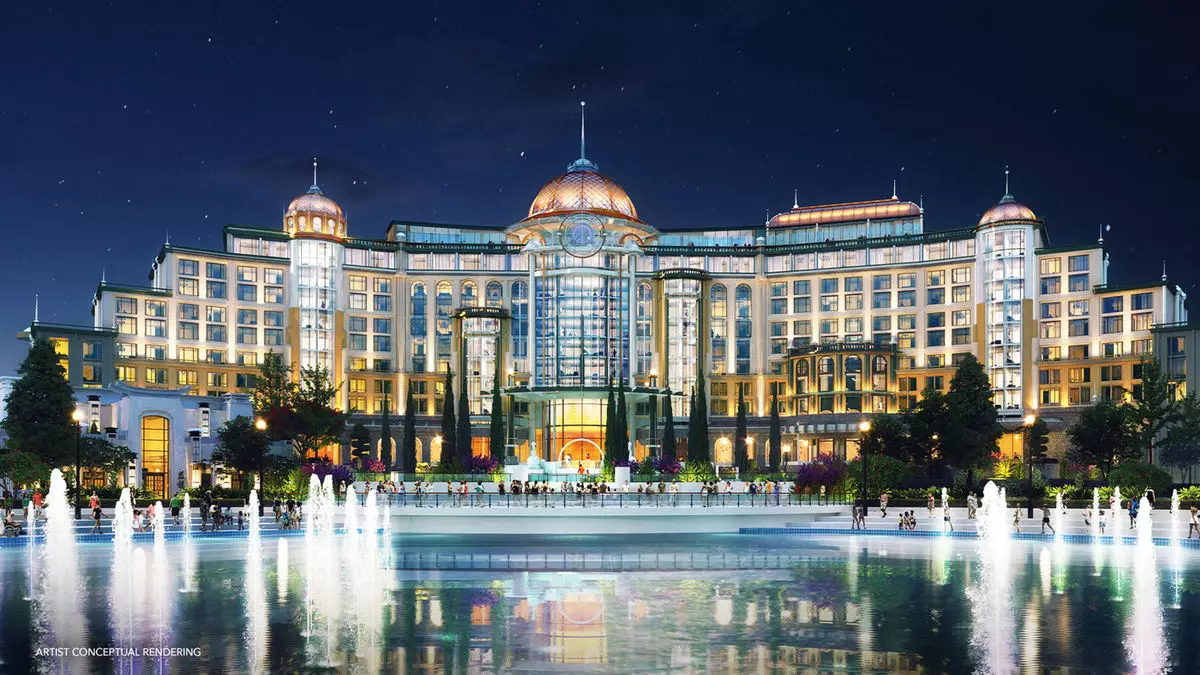Orlando, long recognized as a major hub for theme park enthusiasts, is undergoing a significant transformation in its tourism landscape. While the traditional attractions continue to draw millions, there’s an increasing acknowledgment of the importance of diversifying visitor experiences beyond the renowned thrill rides. With a notable influx of international tourists, alongside a concerted effort to highlight the area’s non-theme park offerings, the city demonstrates resilience amidst national travel trends that show signs of slowing down.
Recent reports from Visit Orlando, the region’s tourism marketing entity, reveal a slight decline in hotel occupancy rates, which dropped by 2.4% year-to-date compared to the same period last year. This indicates a shift from the frenetic travel spikes observed during and post-pandemic back to more stable, pre-pandemic travel patterns. Despite this contraction in hotel occupancy and a 0.9% dip in overall demand, the city recorded a robust total of approximately 74 million visitors last year, buoyed significantly by a 25% surge in international travelers. This growth underscores the region’s draw for global tourists, which contrasts with the deceleration in domestic leisure travel.
According to Casandra Matej, the CEO of Visit Orlando, the potential for continued visitor expansion exists even as domestic numbers wane somewhat. “We observed minor declines in domestic tourism, but our international growth tells a different story,” she stated, emphasizing the importance of global interests in Orlando’s tourism future. Maria Henson, the senior director of market research at Visit Orlando, anticipates modest visitation growth of 1% to 2% for the upcoming year, bolstered by seasonal events that attract visitors year-round.
The summer months experienced softer demand, with many U.S. travelers choosing to explore international destinations as the cruise industry saw a renaissance. Robert Agrusa, CEO of the Central Florida Hotel & Lodging Association, expressed optimism for the future, particularly with the forthcoming launch of Epic Universe, Universal Orlando Resort’s eagerly awaited third theme park. Such expansions represent not just new attractions but pivotal opportunities for community growth and economic stimulation.
The introduction of Epic Universe promises to be a game-changer for the Orlando tourism landscape, featuring over 50 attractions that span a diverse range of entertainment, dining, and shopping options. The anticipated arrivals of additional hotels, including the Universal Stella Nova and Universal Terra Luna Resorts, slated to open next year, further complement this extensive development. Local travel advisor Katie Coleman notes a current dip in demand for Universal Studios but emphasizes that many are strategically awaiting the launch of Epic Universe before solidifying their travel plans, highlighting a cautious optimism among potential visitors.
While some may worry about a temporary lull in visitation due to new openings, Henson counters that past data shows minimal impact on overall visitor numbers. “We have a plethora of offerings that continue to captivate both first-time and returning visitors,” she remarked, indicating that for those yet to discover Orlando, the upcoming attractions present a remarkable opportunity to experience something entirely new.
Beyond the upcoming theme park developments, Visit Orlando is proactively showcasing the area’s growing assortment of nature-oriented and cultural attractions. There is a concerted effort to position Orlando as a destination that transcends its theme park identity. Matej highlights the region’s ecotourism potential with activities such as kayaking, and swimming with manatees, which reveal a side of Orlando that many travelers might overlook.
Furthermore, the city’s arts and culture scene is flourishing, with events ranging from Broadway-level performances at the Dr. Phillips Center for the Performing Arts to the upcoming return of the Blue Man Group at Icon Park. This diverse cultural landscape is enticing families to explore more than just theme parks. As Coleman notes, many clients now seek to expand their itineraries to include local experiences rather than solely relying on high-cost theme park days.
Orlando’s tourism narrative is evolving as it matures into a multifaceted destination. As Agrusa aptly puts it, “We’re still relatively young in the grand scheme of things.” With a forward-thinking approach and a commitment to diversifying visitor experiences, Orlando is poised to strengthen its reputation and attract even more visitors from around the globe. This commitment to evolution is imperative for sustaining growth, ensuring that the city remains competitive in an ever-changing global tourism environment, while continuing to foster both community development and visitor satisfaction.

